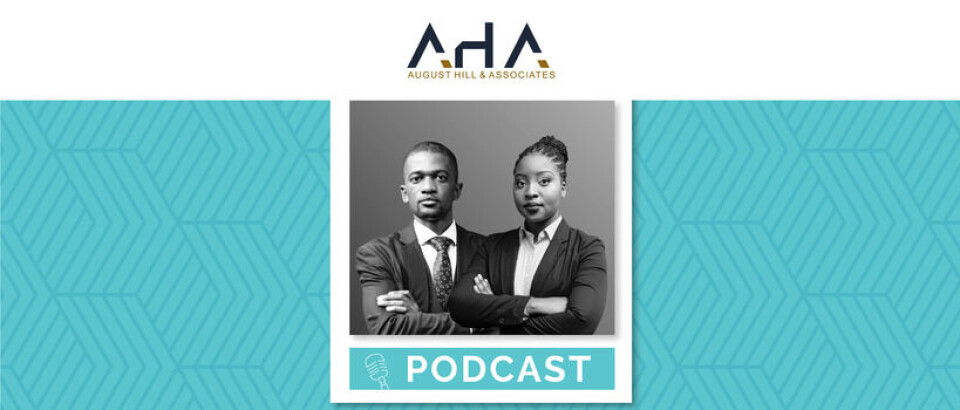Copyright : Re-publication of this article is authorised only in the following circumstances; the writer and Africa Legal are both recognised as the author and the website address www.africa-legal.com and original article link are back linked. Re-publication without both must be preauthorised by contacting editor@africa-legal.com
Fostering diversity, equity and inclusion in law

Milimo Mumbi and Chimwemwe Banda-Bwalya of leading Zambian law firm August Hill and Associates recently shared their views on diversity, equity and inclusion with Africa Legal.
August Hill Associate Milimo Mumbi’s outlook on fostering diversity and an inclusive legal environment has been shaped by encounters with people from different ethnic backgrounds, even while at university.
What Mumbi found was that differing opinions and suggestions on ways to resolve a problem helped produce solutions quicker, and he has seen that play out in the workplace. He has also noticed that more women are now given a place at the table, allowing them to be key decision makers.
Mumbi’s colleague, advocate Chimwemwe Banda-Bwalya, says this wasn’t always the case, and while many law firms have made strides in empowering women, the industry is still dominated by men. Banda-Bwalya attributes this to men being viewed as readily available to put in the long working hours, while women are seen as being bogged down by family affairs.
In the podcast, she discusses the importance of mentorship in empowering women in the legal profession.
“I've been fortunate enough to have bosses who have been very deliberate about ensuring that I have certain standards to which I work and conduct myself in court,” said Banda-Bwalya.
She also praised the late Irene Chirwa Mambilima, the former Chief Justice of Zambia, saying, “She’s changed things for us women. If a woman can stand and lead the whole judiciary, there's so much more that we can do as women.”
Mumbi believes inclusion and diversity need to be taught at law schools. He says at the moment these issues are only touched upon and taught as abstract concepts. “No one is speaking to the practicality of what this entails in the legal profession and how students should now ready themselves to actually go and practice that abstract concept that's being taught.”
To address this, Mumbi says there should be a mentorship program at university level and opportunities should be created for law students to practically experience this in a workplace.
He believes that to create further inclusivity, the industry needs to be more considerate of people with disabilities, encouraging the use of braille and sign language in courtrooms.
Banda-Bwalya also shares her views on the next generation of lawyers and how technology will help better serve their clients.
Click here to listen to the full podcast on Soundcloud, Spotify, Apple Podcasts and Amazon Music.
To join Africa Legal's mailing list please click here
